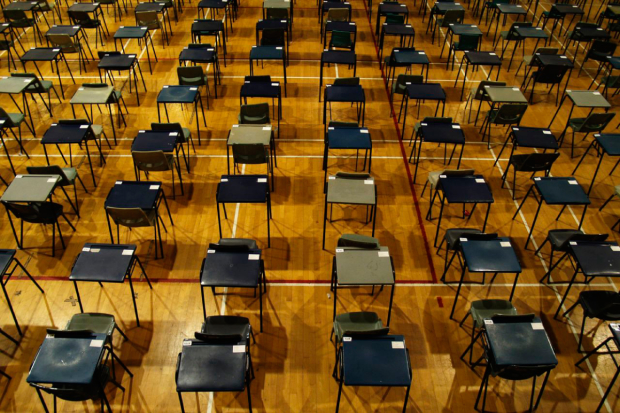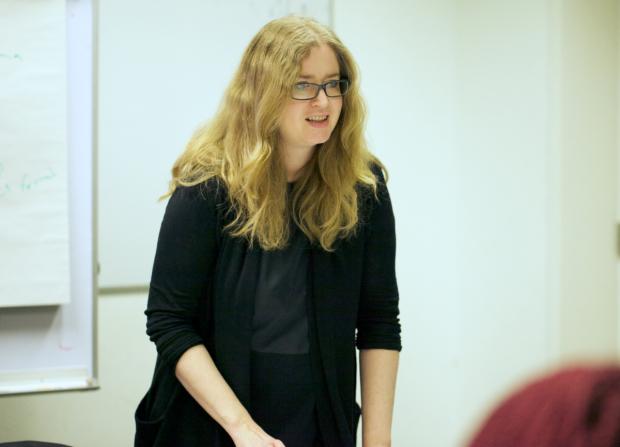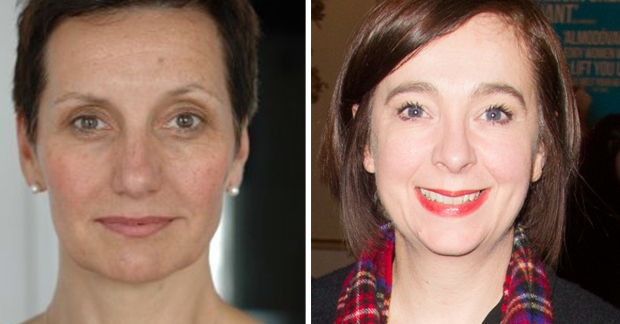How do we improve arts education?

Recently, there’s been an increasing amount of talk about arts education. At the Olivier Awards, John Tiffany and Amber Riley among others spoke about the importance of arts education, and a House of Lords inquiry this month looked into the gap between education and the skills needed by the creative industries.
At Central Saint Martins, this is something I’ve been thinking about a lot over the last four years, and, on the MA Dramatic Writing course I run, we launched a campaign to increase access and diversity and to improve arts education just over a year ago. This has so far consisted of initiatives such as University Women in the Arts, The Student Guide to Writing series and London Writers’ Week, each run with industry partners.
One of the key things which we have noticed is the importance of improving the seriousness with which teaching is taken, if we are going to increase access and diversity in the arts industry. For example, over the ten years I’ve been working at universities, I’ve heard more times than I can count a writer say about their teaching job "I’m only doing it for the money". I will also always remember my first teaching job where I was told on my first day to "do as little as possible" so I would have the most time for my writing. Similarly, a colleague spoke to me a while ago about a young director who had approached him asking for advice about teaching – "I told him he was young and doing well as a director, why would he want to teach?"
Universities can also be places to foster new ideas and experimentation and play a role as thought leaders
However, if students are taking part and full-time jobs now to fund their studies, as a result of higher fees and no grants from the government, we’re no longer in a position where the above is acceptable. Similarly, it’s this attitude, it seems to me, that has promoted distrust at times between the arts industry and education – for example the view expressed to me once by people working in a theatre that they weren’t sure they wanted to do a project, citing the old adage of "those who can, do; those can’t, teach".
What we’re missing with these comments is the key that education is about training the next generation, and, as such, something we should all take seriously and where this opportunity should be embraced. What are the craft skills we want to give this next generation? What are the business skills? What are the ethical skills? What are the ideas? What do we want the next generation to be trained in? What do we want them to believe is important as they go on to shape the future of our industry?
In addition to the opportunity offered by training the next generation, universities can also be places to foster new ideas and experimentation and play a role as thought leaders. One of the first things I did on the MA Dramatic Writing was to create two years of experimentation, out of which has come the Lab, a place for companies to come in and be supported to explore new ideas – companies we’ve had in include the Kevin Spacey Foundation, developing their show for the opening of the Middle East Theatre Academy, Tonic Theatre, exploring ideas for their Platform project, while BBC Writersroom developed their 24 hour online drama experiment The Last Hour of Laura K, which went on to be nominated for a BAFTA. As universities move towards a more business-minded attitude based on changes to government funding, we mustn’t lose this role.
We need to improve the seriousness with which teaching is taken
So what can we do to ensure the future improvement of arts education? I believe the key things are to focus on: the huge and exciting opportunity offered by teaching to train the next generation, the role of universities as thought leaders, and more government investigation into how we can improve arts education. I was at an event at Parliament recently where an Arts Bacc (an arts version of the EBacc) was proposed, and I have also put forward that parliament should launch an investigation into why so many more women study the arts but less women work in the arts, just as they have run an inquiry into working class actors.
The final way to improve arts education, I believe, is for the education sector and arts industry to work together. In the past, it seems to me there has been distrust on each side which we are moving away from – comments I have heard include the "lecturers are out of date" comment from a theatre but also "they just wanted to use our space" from a university. One issue also seems to be that the sectors work at different paces, with universities often working more slowly. But, with clear expectations, I strongly believe collaboration and an investigation of the possibilities of that collaboration is the key to most of the above.

One of the best moments I’ve had as a teacher was at a tutorial last year, where a graduating student began crying. "Why are you crying?" I asked her, alarmed that I had done something wrong. "You’ve changed my life" she said "I can’t thank you enough".
That is the role of education and why we all need to treat it with the seriousness it deserves.
The Bush Theatre hosts a panel discussion today on the importance of teaching as part of the final stage of The Student Guide to Writing: Playwriting competition. Find more information here. Jennifer Tuckett is a lecturer and director of University Women in the Arts.











